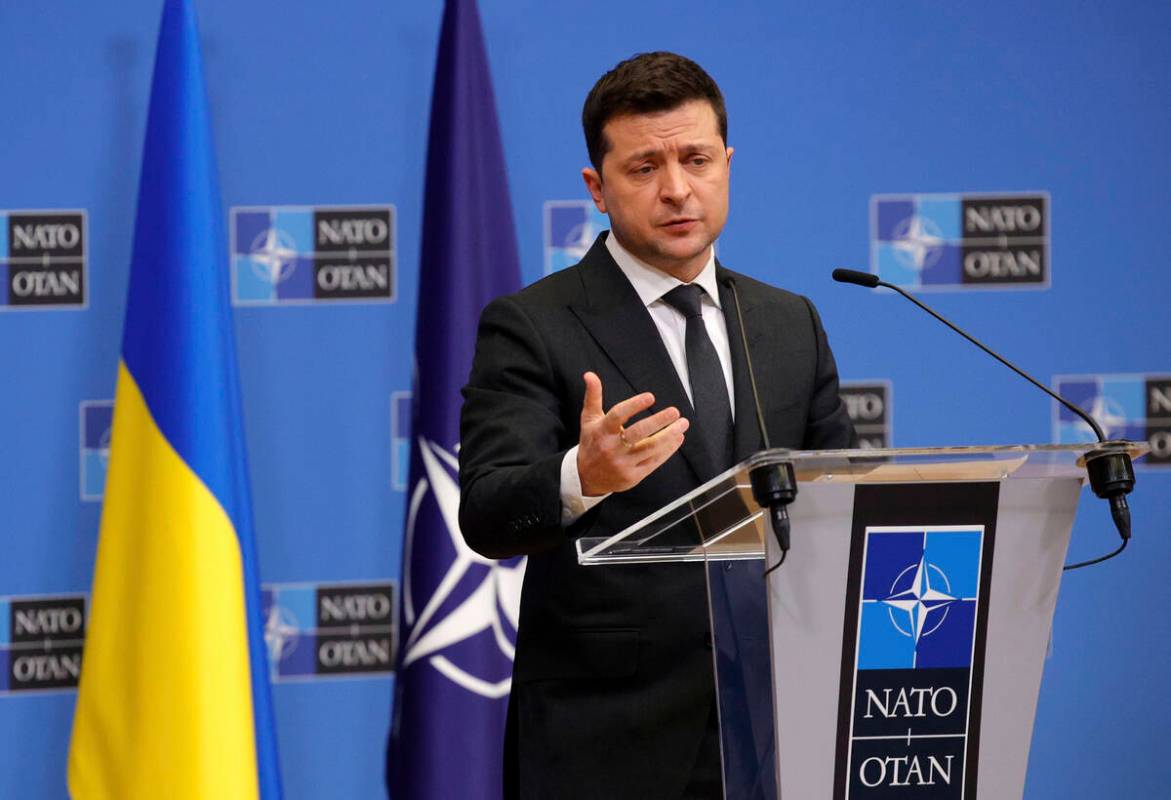VICTOR DAVIS HANSON: The strange disconnect between Israel and Ukraine

The Ukrainian and Israeli wars are similar and yet also different conflicts — but in more ways than we can imagine.
Ukraine was invaded by a huge Russian state, with a population three-and-a-half times greater, a gross national product 10 times larger, and an area 30 times its size.
Hamas, by contrast, is a terrorist clique of about 50,000-70,000 gunmen and terrorist kingpins who run Gaza. It is dwarfed by the Israeli population (20 times larger), economy (27 times greater) and area (60 times larger).
Both Russia and Hamas started the wars. Russia was convinced it would easily crush the smaller neighbor. Hamas hoped to spark a pan-Islamic jihad against the Jewish state.
Most of Europe, the United States and the West understandably supported arming Ukraine to repel Vladimir Putin’s Russian aggression.
By contrast, such support for democratic Israel was strangely mixed.
In many elite, political, academic and media circles, Israel is criticized for its massive retaliation after Oct. 7.
The Western attitude toward the two wars grows even more inconsistent, if not incoherent.
There are constant calls for Israel to be “proportionate” in Gaza following the massacres of nearly 1,200 Jews, the vast majority civilians. But Westerners understandably seek to give Ukraine more and better arms than Russia to ensure a disproportionate response necessary to win the war.
Israel is faulted for collateral damage from its efforts to destroy Hamas — even though terrorists are burrowed in and beneath hospitals, mosques, and schools. Israeli hostages are used as human shields to protect Hamas gunmen.
No matter. Israel is expected to text or drop leaflets warning Gazan civilians to keep clear of impending air attacks, despite Hamas launching 7,000 rockets with no such warnings into civilian centers in Israel.
On Oct. 7, Hamas, along with some Gazan civilians, tortured, decapitated, raped and murdered hundreds of Israeli civilians to start the war.
By contrast, no one in the West asks the Ukrainians to warn surrounding civilian populations in occupied Ukraine or inside Russia to keep clear of their intended targets. To do so, apparently, would lessen the surprise effect of Ukrainian attacks.
The West has relentlessly hammered Israeli Prime Minister Benjamin Netanyahu for his supposedly right-wing government and its “disproportionate” retaliation in Gaza. He is closely watched by his American patrons for any sign of absolutist rule or failure to create an inclusive wartime Cabinet representative of a wide diversity of Israeli political figures.
Yet, Ukrainian President Volodymyr Zelenskyy has not only suspended elections during the war but also declared martial law over his entire country. Instead of facing Western censure, Zelenskyy remains a rock star in the West. Few seem bothered that he suspended most political parties, blurring the higher-ground difference between autocratic Russia and a supposedly democratic Ukraine.
Note that Israel, like the United States during World War II, has not declared martial law. Instead, it has formed a bipartisan coalition government with members of the opposition.
The United States keeps lecturing Israel to restrain its response to avoid a wider regional war in the Middle East. It fears Israeli retaliation for Oct. 7 is apparently more incendiary than Hamas’ unprovoked invasions and murder of Israelis.
Yet, supplying a Ukrainian proxy to attack Russia, sometimes on the Black Sea or inside Russia, appears a far more dangerous gambit. Hamas’ allies lack the 6,000 nuclear weapons of Russia and have no allies comparable to those now aligning with Moscow, such as China and North Korea.
Western media and politicians correctly discount Russian propaganda emanating from Moscow, especially its unsubstantiated claims of relative Russian and Ukrainian casualties or Ukrainian setbacks or atrocities. Yet many of these same Westerners oddly take Hamas’ casualty totals at face value.
They have been gullible enough even to swallow Hamas lies that the Islamic jihad rocket that hit a Gazan hospital was an Israeli bomb.
By any fair standard, Hamas has proven to be no more honest, and perhaps far more inaccurate, than even Russian state-controlled media.
So what accounts for these strange disconnects in Western attitudes toward these two wars? It certainly has nothing to do with consistently siding against those who started the war, or standing always with the more democratic power — or even logically against the side that is more likely to commit atrocities.
The answers seem as obvious as they are disturbing.
Many in the West have a bias against the Jewish state, as antisemitism rebounds in Europe and the United States.
Popular Western culture often romanticizes Hamas killers as freedom fighters and demonizes collectively the Russian people as stereotyped Hollywood villains.
Middle East oil money and massive immigration into Western countries dwarf the influence of an ailing Russia.
Left-wing politicians in Europe and the United States court their growing Muslim constituents and have no worry about a commensurate Russian lobby.
And so the disconnect grows into absurdity.
Victor Davis Hanson is a distinguished fellow of the Center for American Greatness and a classicist and historian at Stanford’s Hoover Institution. Contact him at authorvdh@gmail.com.